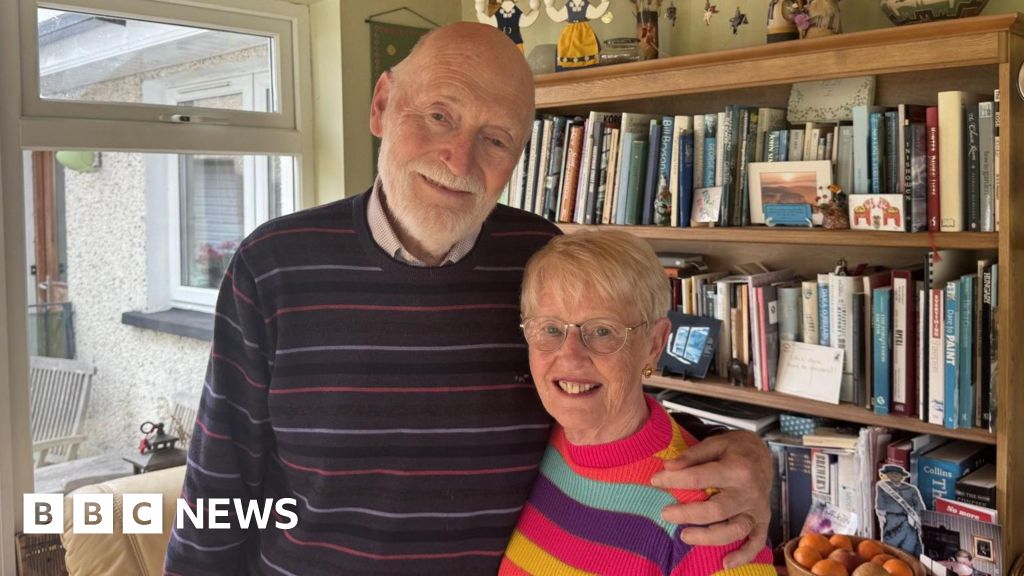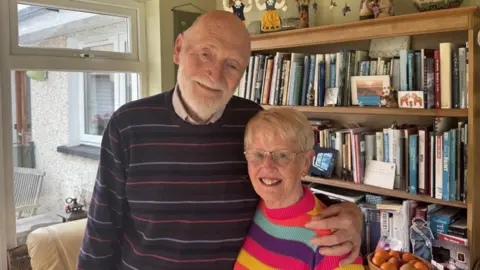 BBC
BBC
Mick Turner, left, was diagnosed with early on-set dementia in 2021 and his wife Christine is his primary carer
A dementia diagnosis does not have to be “the end of the world”, one man who has been living with the disease for a number of years has said.
Mick Turner, from Articlave in County Londonderry, received his diagnosis four years ago after his wife Christine noticed problems with his memory.
While some days can be “very frustrating”, Mr Turner said he was keen to not have his diagnosis consume him and aims to still have “an interesting and meaningful life”.
He was speaking as Queen’s University Belfast hosted a dementia-focused conference designed for patients, families and researchers to learn more about the condition.
The programme of the Dementia: Caring for Today, Planning for Tomorrow conference aims to provide an opportunity to “share worries and life’s problems with other people” living with the condition.
‘Challenging’ diagnosis
Speaking to BBC News NI before attending the conference, Mr Turner said his dementia diagnosis was “something like a challenge”.
“I feel that I will get totally useless at doing anything other than breathing, so I want to do things while I can remember,” he said.
Mr Turner tries to keep himself right by having a checklist of activities every day.
“I’ll think something’s easy and then I’ll sit down and I’ll think what am I doing? How do I do this? And that gets a bit scary,” he said.
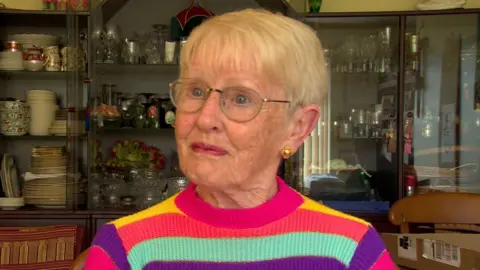
Christine Turner cares for her husband, often taking him to the lesiure centre or other group activities
Christine is his primary carer.
She said the diagnosis had changed their lives.
“Getting older you have lots of things you would like to do still and then out of the blue this happens and you don’t know what lies down the road,” she said.
“It’s very scary.”
The couple have been trying to keep active both mentally, physically and socially to help manage the symptoms, often taking part in meditation or heading out with friends.
They are still able to attend meet ups of organisations they are members of, both together and separately.
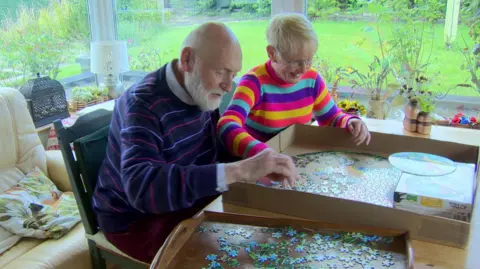
The couple try to fill their days doing lots of activities, such as puzzles
Mrs Turner said acknowledging that life was changing but adapting their everyday routines had helped them.
The couple attended the first dementia conference at Queen’s three years ago, where they heard more about the different kinds of research and care methods.
‘I do not suffer, but I struggle’
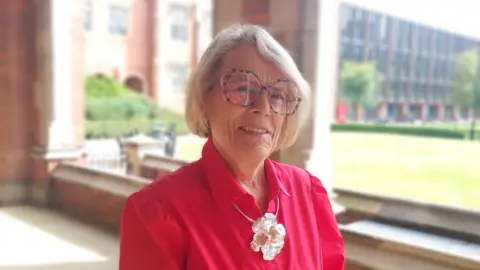
Helen Rochford-Brennan was diagnosed with Alzheimer’s in 2023 when she was 57-years-old
Another participant at the conference was Helen Rochford-Brennan from Tobercurry, County Sligo, in the Republic of Ireland.
Since her diagnosis in 2013 when she was 57 she has been involved in research and has seen first-hand the impact speaking about the condition can have.
“I want the world to know that we can live with this dreadful illness, but we can only live with supports,” she said.
“I do not suffer one bit from having the illness but I struggle.
“We can still live a good life, I won’t say it’s a wonderful life. It can be very isolating.
“It can be very lonely. I have other health issues. But I have to get up every day and say what am I going to do today.”
What is dementia?
Dementia is a syndrome (a group of related symptoms) associated with an ongoing decline of brain functioning.
Memory loss is one of the most common symptoms, particularly the struggle to remember recent events.
Others can include changes to behaviour, mood and personality, becoming lost in familiar places or being unable to find the right word in a conversation.
It can reach the point where people don’t know when they need to eat or drink.
More than 25,000 people are living with dementia in Northern Ireland, according to the Alzheimer’s Society, but that number is expected to almost triple to 60,000 by 2051.

